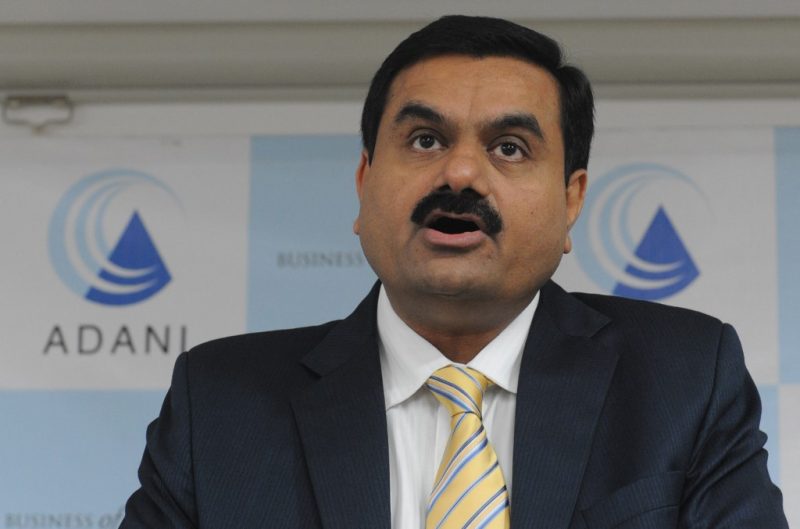Asian shares were down for a sixth straight session on Tuesday after a renewed spike in European energy prices stoked fears of recession and tipped the euro to 20-year lows.
China stocks closed lower, as investors fretted that recent support measures were not sufficient to turn the country’s beleaguered property sector around, while rising Covid-19 cases and extended power curbs also dented sentiment.
The CSI300 Index was down 0.5% at the close, while the Shanghai Composite Index edged 0.1% lower. The Hang Seng Index declined 0.8%, and the Hang Seng China Enterprises Index lost 0.7%.
Real estate developers lost 1.4%, after closing almost flat in the previous session, even as China cut its benchmark lending rate and lowered the mortgage reference.
There were also reports that China was planning to offer 200 billion yuan ($29.2 billion) in special loans to ensure stalled housing projects were delivered to buyers.
“The latest batch of policies will help, but they are still reactive and piecemeal,” Nomura said in a note. “Simply put, these supportive measures are not able to turn around the heavily hit property sector yet.”
Shares of energy firms rose 2.6% and photovoltaic companies added 1.4%.
“We think that it will continue to slide, given that the economy faces multiple challenges, including from its property sector,” Capital Economics analysts said in a note, referring to China’s stock market.
They also warned power shortages due to droughts in parts of the country looked set to hobble industries in the near-term.
ALSO SEE: Huawei Warns of Long Global Recession, Targets ‘Survival’
Japan’s Nikkei Down
Japan’s Nikkei fell for a fourth straight session on Tuesday, tracking Wall Street’s overnight losses ahead of a US Federal Reserve gathering later this week, while airlines and retailers jumped on news about possible easing of border rules on Covid.
The Nikkei closed 1.2% lower at 28,452.75, while the broader Topix slipped 1.1% to 1,971.44.
Wall Street closed sharply lower on Monday as investors fretted that the Jackson Hole gathering would reinforce a strong commitment by the Fed to stamp out inflation.
“The Japanese market is weak today but relative to an almost 2% fall in the Dow, the Nikkei’s decline is smaller. That’s because investors have started buying stocks at a dent,” said Jun Morita, general manager of the research department at Chibagin Asset Management.
Meanwhile, a PMI survey showed Japan’s factory activity growth slowed to a 19-month low in August as output and new order declines deepened, amid growing pressure from persistent rises in raw material and energy costs and weakening global demand.
Technology stocks fell, tracking losses in their US peers after Treasury yields rose.
Start-up investor SoftBank Group fell 2.4% and medial platform services provider M3 slipped 2.9%. Chip-making equipment maker Tokyo Electron fell 0.8%.
Hino Motors, Toyota Motor’s truck and bus unit, tanked 6.4% and was the top loser on the Nikkei after its engine-related misconduct widened to small trucks. Toyota slipped 2.2%.
Bucking the trend, leisure-related shares gained after reports Japan may remove requirements for pre-departure Covid tests for travellers and raise daily caps on foreign visitors.
Australian Shares Near 3-Week Low
Australian shares extended losses, dragged down by financials and healthcarestocks, but gains in mining and energy stocks on firm commodity prices capped losses.
The S&P/ASX 200 index ended 1.2% lower at 6,961.8 points at the close of trade, hitting its lowest level since August 3. The index ended 1% lower on Monday.
Financials were the top laggards on the benchmark, falling for the fourth straight session after shedding 2.1%. All of the so-called “Big Four” banks trading in negative territory.
Higher bond yields in the wake of anxieties around Fed’s further rate hikes could be one cause for the financials’ dip, Kunal Sawhney, CEO of Kalkine Group, said.
China’s iron ore and steel prices rose after the government’s latest benchmark lending rate cuts boosted sentiment, with the demand outlook also set to improve ahead of the peak season for construction steel.
Similarly, energy and gold stocks rose 1.3% and 0.6%, respectively, buoyed by gains in oil and bullion prices.
Indian Shares Edge Up, But Adani Units Down
Indian shares closed higher on Tuesday, thanks to a sharp recovery by financials such as ICICI and other banks, after swinging between gains and losses through the session, while IT stocks continued to weigh on sentiment.
The NSE Nifty 50 index ended 0.5 % higher at 17,577.5, after falling as much as 0.8% in the session, while the S&P BSE Sensex rose 0.4% to 59,031.3.
The Nifty 50 index had risen 4.6% this month until August 18, after which investors began to book profits. The index shed 2.6% in the previous two sessions.
Meanwhile, shares of Adani fell after a report saying that the group, controlled by billionaire Gautam Adani, is “deeply over-leveraged” and that its many investments in capital-intensive businesses could pose long-term risks to investors was issued by Fitch’s debt research unit CreditSights on Tuesday.
The conglomerate’s debt-funded growth plans could spiral “into a massive debt trap” and culminate in distress or default of its companies and the broader Indian economy in a “worst-case scenario”, CreditSights said.
The grim assessment comes at a time group companies are investing in new sectors such as telecom, cement and long-term infrastructure projects.
The heavy debt of the companies poses a risk at a time when interest rates are high and due to the long gestation period of some of the infrastructure projects, CreditSights said in its report.
Shares in Adani Group companies including flagship Adani Enterprises, Adani Green Energy, Adani Ports and Adani Power fell after the release of the report, which pegged the conglomerate’s total debt at 2.3 trillion rupees ($28.8 billion).
Shares of Adani Green, up about 170% over the year, led the slide falling as much 6.9%. Adani Power, which has risen more than five-fold in the last year, fell 5% – the limit a stock price can move on a lower circuit on a single day.
- Reuters with additional editing by Jim Pollard
ALSO SEE:
Pinduoduo Plans E-Commerce Platform For US Market
Hino’s Engine Scandal Now Impacting Toyota Trucks
India’s Adani Overtakes Buffett as World’s Fifth Richest
























